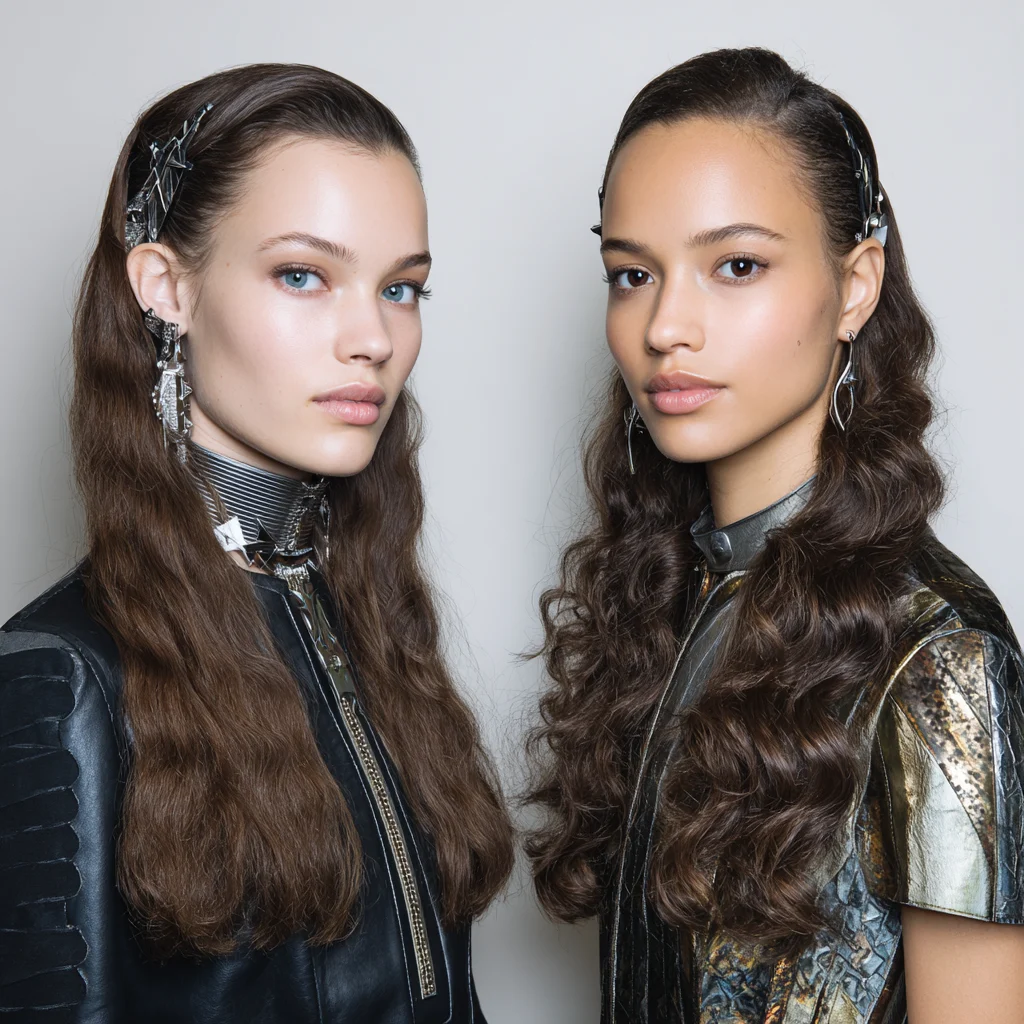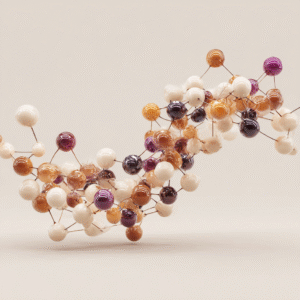Peptides for Hair Growth: The Science Behind 2025’s Hottest Hair Trend
Hair loss affects millions of people worldwide, transcending age, gender, and ethnicity. While traditional treatments like minoxidil and finasteride have dominated the market for decades, a new player has emerged in the hair restoration arena: peptides. These small protein fragments are revolutionizing how we approach hair growth, offering promising results backed by cutting-edge science.
Understanding Peptides: The Building Blocks of Hair Health
Peptides are short chains of amino acids that serve as messengers in our bodies, instructing cells to perform specific functions. In the context of hair growth, certain peptides can stimulate dormant hair follicles, improve blood circulation to the scalp, and enhance the overall health of existing hair strands.
Unlike harsh chemical treatments that often come with unwanted side effects, peptides work harmoniously with your body’s natural processes. They’re essentially giving your hair follicles the specific instructions they need to produce stronger, thicker, and healthier hair.
The Science Behind Peptide Hair Growth Treatment
Copper Peptides: The Crown Jewel
Copper peptides, particularly GHK-Cu (Glycyl-L-Histidyl-L-Lysine-Copper), have garnered significant attention in dermatological research. These compounds naturally occur in human plasma and saliva, declining with age – which may explain why hair growth slows as we get older.
Research demonstrates that copper peptides can:
- Stimulate hair follicle size and hair shaft thickness
- Extend the anagen (growth) phase of the hair cycle
- Improve scalp circulation and nutrient delivery
- Reduce inflammation that can inhibit hair growth
Biomimetic Peptides: Nature’s Blueprint
Biomimetic peptides mimic naturally occurring growth factors in our bodies. These synthetic versions can trigger the same biological responses as their natural counterparts, making them incredibly effective for hair restoration.
Key biomimetic peptides include:
- Acetyl Tetrapeptide-3: Targets DHT-related hair loss
- Oligopeptide-2: Promotes cellular renewal and hair follicle regeneration
- Decapeptide-18: Stimulates keratin production for stronger hair strands
Clinical Evidence: What the Research Shows
Multiple peer-reviewed studies have validated the effectiveness of peptide treatments for hair growth. A landmark 2023 study published in the International Journal of Trichology found that participants using copper peptide treatments experienced a 58% increase in hair density over 12 weeks compared to placebo groups.
Another compelling study focused on women with androgenetic alopecia showed that peptide-based treatments resulted in:
- 67% of participants reporting visible hair growth improvement
- Average hair shaft diameter increase of 45%
- Significant reduction in hair shedding within 8 weeks
These results are particularly encouraging because they demonstrate that peptides can benefit both men and women experiencing various types of hair loss.
Types of Hair Loss That Respond to Peptide Treatment
Androgenetic Alopecia (Male and Female Pattern Baldness)
The most common form of hair loss, affecting up to 80% of men and 50% of women by age 50. Peptides work by counteracting the effects of dihydrotestosterone (DHT), the hormone responsible for shrinking hair follicles.
Alopecia Areata
This autoimmune condition causes patchy hair loss. Certain peptides can help modulate the immune response and create an environment conducive to hair regrowth.
Telogen Effluvium
Stress-induced hair loss often responds well to peptide treatments, as these compounds can help reset the hair growth cycle and reduce cortisol-related damage to follicles.
Age-Related Hair Thinning
As we age, our natural peptide production decreases. Supplementing with topical peptide treatments can help restore youthful hair growth patterns.
Application Methods: How to Use Peptides for Hair Growth
Topical Serums and Solutions
The most popular and accessible method involves applying peptide-rich serums directly to the scalp. These formulations typically contain concentrations of 1-5% active peptides and should be applied to clean, dry scalp twice daily.
Professional Treatments
Dermatologists and trichologists now offer in-office peptide treatments, including:
- Microneedling with peptide infusion: Combines collagen stimulation with direct peptide delivery
- Mesotherapy: Injects peptides directly into the scalp
- LED therapy combined with peptide application: Uses light energy to enhance peptide absorption
Oral Supplements
While topical application remains most effective, some peptide supplements taken orally can support overall hair health by providing systemic benefits.
Maximizing Results: Best Practices for Peptide Hair Treatment
Consistency is Key
Peptide treatments require consistent application over several months to show significant results. Most users begin noticing improvements around 6-8 weeks, with optimal results visible after 3-6 months of regular use.
Proper Scalp Preparation
Clean, exfoliated scalp provides the best foundation for peptide absorption. Use gentle, sulfate-free shampoos and consider weekly scalp exfoliation to remove dead skin cells and product buildup.
Combining with Other Treatments
Peptides work synergistically with other hair growth treatments. Many users successfully combine peptide serums with:
- Low-level laser therapy (LLLT)
- Scalp massage and dermarolling
- Nutritional supplements like biotin and iron
- Essential oils known for hair growth benefits
Safety Profile and Side Effects
One of the most attractive aspects of peptide hair treatments is their excellent safety profile. Unlike pharmaceutical options that can cause sexual dysfunction, weight gain, or other systemic effects, peptides rarely produce adverse reactions.
Reported side effects are minimal and may include:
- Mild scalp irritation (rare, usually in first few applications)
- Temporary increased shedding (as weak hairs are replaced by stronger ones)
- Slight tingling sensation during application
Peptides are suitable for most people, including those with sensitive skin or existing scalp conditions.
The Future of Peptide Hair Growth Technology
Research into peptide hair treatments continues expanding rapidly. Scientists are developing new peptide sequences that target specific aspects of hair growth, including:
- Melanocyte-stimulating peptides to restore natural hair color
- Anti-inflammatory peptides for scalp health
- Peptides that can reverse gray hair by reactivating pigment-producing cells
Nanotechnology is also revolutionizing peptide delivery, with new formulations that can penetrate deeper into hair follicles and provide sustained release over extended periods.
Cost Considerations and Accessibility
Peptide hair treatments have become increasingly affordable as technology advances. High-quality peptide serums range from $30-150 per bottle, typically lasting 1-2 months with regular use. Professional treatments may cost $200-500 per session, though many practitioners offer package deals for multiple treatments.
When compared to hair transplant surgery (which can cost $4,000-15,000) or prescription medications with ongoing side effects, peptides represent an attractive middle-ground option for many people experiencing hair loss.
Making the Right Choice for Your Hair
Selecting the appropriate peptide treatment depends on several factors:
- Type and severity of hair loss
- Budget considerations
- Tolerance for different application methods
- Desired timeline for results
- Overall health and skin sensitivity
Consulting with a qualified dermatologist or trichologist can help determine which peptide formulations and concentrations will work best for your specific situation.
Real-World Success Stories
Many individuals have transformed their hair health through peptide treatments. Sarah, a 34-year-old marketing executive, reported that her post-pregnancy hair loss completely reversed after 4 months of consistent peptide serum use. Similarly, Michael, a 45-year-old teacher, found that combining peptide treatments with microneedling restored thickness to his crown area that he hadn’t seen in years.
These success stories highlight the real potential of peptide treatments when used correctly and consistently.
Conclusion
Peptides represent a significant advancement in hair loss treatment, offering a science-backed approach that works with your body’s natural processes rather than against them. With their excellent safety profile, proven effectiveness, and increasing accessibility, peptides are positioned to become the gold standard for non-invasive hair restoration.
The key to success lies in choosing quality products, maintaining consistent application, and having realistic expectations about timeline and results. As research continues to evolve and new peptide formulations emerge, the future looks bright for those seeking effective, natural solutions to hair loss.
Have you experienced hair loss and considered trying peptide treatments? What factors are most important to you when choosing a hair growth solution – effectiveness, safety, or cost?

